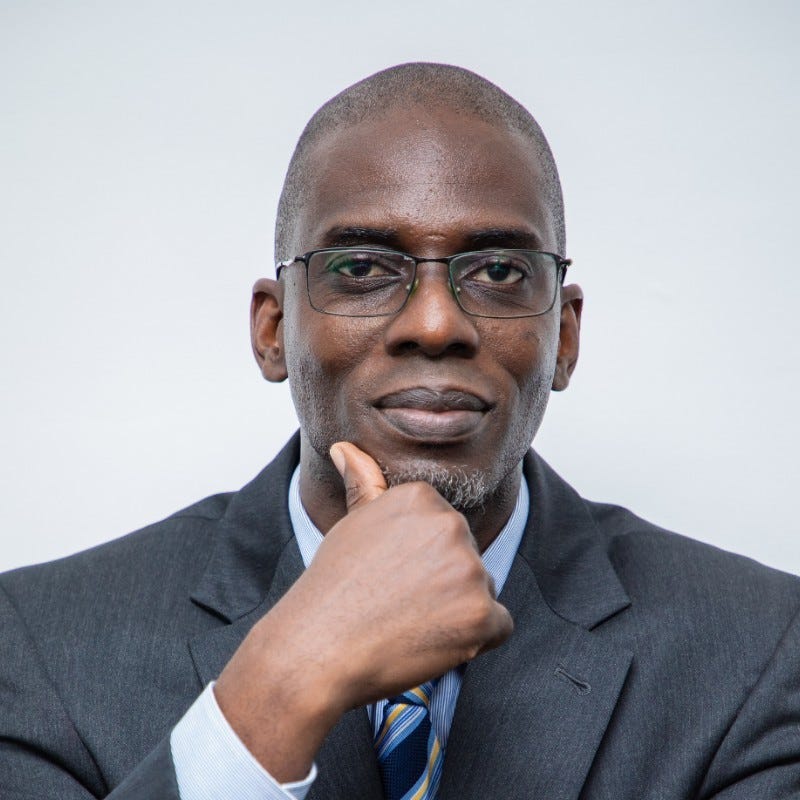Navigating the AI Revolution: Reflections from My Entrepreneurial Journey in Africa with Kofi Dadzie
Quick recap
The meeting focused on the importance of technology and innovation in Africa, with Kofi sharing his personal journey and experiences in the field. The group also discussed the need for Africans to drive their own agenda, prioritize insourcing solutions, and understand the sociological and psychological aspects of people's motivations and behaviors.
Summary Kofi's Journey in Technology and Learning
In the meeting, Chukwuemeka welcomed everyone to the Africa Deep Tech Community Meetup and introduced Kofi, who shared his personal journey and experiences in the field of technology. Kofi recounted his early days in secondary school, where he was initially interested in becoming an automotive engineer, but later shifted his focus to computer engineering. He shared his experiences as a university intern at an insurance company, where he was initially dismissed but later proved his worth. Kofi also discussed his time at Dell, where he was part of a team that filed a patent. He emphasized the importance of curiosity and learning in his journey, and how these attributes have helped him navigate the challenges in the field of technology.
Rancard's Development and Challenges
Kofi discussed the development of Rancard, an African company he co-founded with his high school best friend Ehi. They aimed to build world-class technology and initially faced challenges due to their location in Accra, Ghana. Despite these challenges, they managed to secure contracts with Google and other major companies, providing them with reliable and efficient technology services. Kofi emphasized the importance of excellence, integrity, and reliability in their operations. He also mentioned their decision to raise institutional capital in 2012 to scale the business.
Kofi's Tech Company Experiences Kofi shared his experiences and lessons learned from his time as CEO of a tech company. He discussed the challenges of raising capital and the clash between his product engineering focus and the PE-led board's focus on scaling the existing business. Kofi emphasized the importance of convincing stakeholders with alternate future outcomes and the need to pivot quickly when faced with new technologies and products. He also shared his experience of stepping back from the company and letting younger, smarter people take the lead. Kofi concluded by discussing his transition to a different aspect of the technology world after Covid hit.
Kofi's Career Transition and AI Concerns
Kofi discussed his career transition from developing technology products to technology policies and strategy. He shared his experiences working with the Blair Institute, the Mastercard Foundation, and the Ghana's Ministry of Communications and Digitalization. Kofi also mentioned his involvement in the Harvard Kennedy School's public leadership credential and his learning about policy design, stakeholder engagement, and risk management. He highlighted the importance of understanding the needs of different groups and the potential risks associated with new technologies. Kofi also touched on the launch of ChatGPT and the concerns raised by Bill Gates and others about the potential risks of AI if not managed properly.
Building AI Ecosystems in Africa
Kofi discussed the importance of data, compute, and talent in building an AI ecosystem. He noted that Africa has a rich data ecosystem, but lacks structured data governance environments. Kofi expressed concern about the European AI risk framework being imposed on Africa, and questioned the continent's ability to own and design AI solutions. He emphasized the need for a culture of in-sourcing solutions to Africa's greatest challenges and the importance of embracing the AI revolution for economic transformation. Kofi also highlighted the need for African minds to contribute to AI breakthroughs and the potential of neuromorphic computing.
Prioritizing Local Innovation for Africa
Kofi argues that for Africa to transform through technology over the next 10-20 years, policymakers need to prioritize insourcing major challenges to local entrepreneurs, scientists, and innovators rather than outsourcing solutions. He believes governments should leverage new technologies like AI to enable local capacity for solving contextual problems. Folarin suggests alternatively that Africa could build on existing global technology infrastructure instead of trying to create everything from scratch. Abiodun proposes policies focused on empowering the next generation through strategic knowledge transfer from international companies. Lameck highlights the need for enabling infrastructure like computing resources and culturally relevant AI models for low-resource African languages.
Driving African Tech Innovation Agenda
In the meeting, Kofi and Chukwuemeka discussed the importance of understanding how technology works from first principles, rather than just reinventing the wheel. They also discussed the potential for Africans to drive their own agenda and create their own internet. Folarin added that understanding the sociological and psychological aspects of people's motivations and behaviors is crucial. Abiodun emphasized the importance of exporting IP and developing Africa, while also acknowledging the challenges of socioeconomic environments. The group also discussed the potential for Africans to influence the next generation of tech leaders and the importance of guiding them toward practical exposure and mentorship.
Defining Africa’s Collective Success Agenda
In the meeting, the participants discussed the importance of having a clear agenda for their collective success. They noted that other cultures, such as Israel, have successfully built their nations based on specific goals, like self-sufficiency and independence. The group agreed that Africa needs to define its agenda and focus on long-term goals, such as feeding itself, powering their industries, and producing goods that the world wants.


